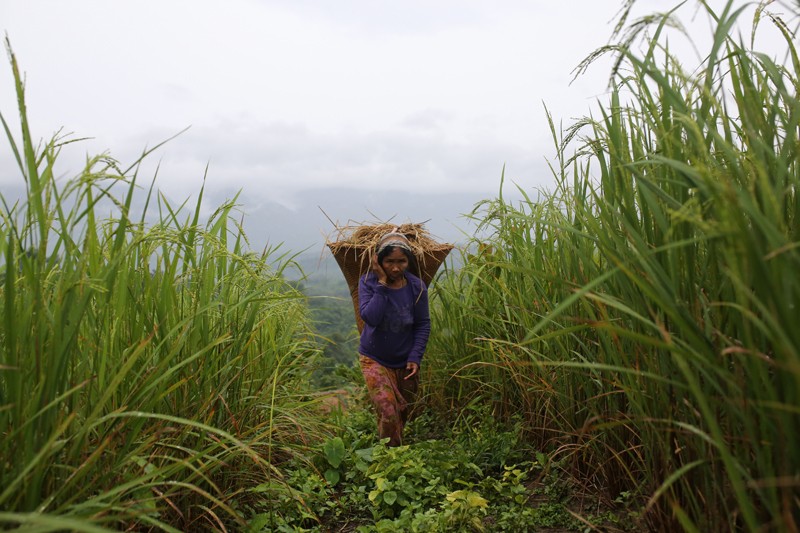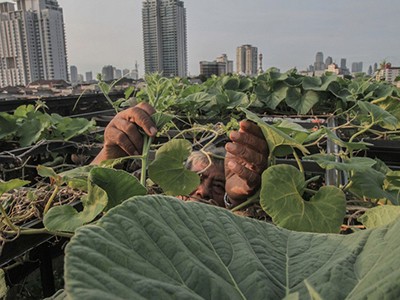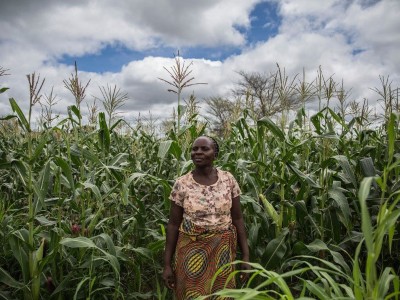Later this year, politicians and policymakers are due to meet to make crucial decisions on protecting biodiversity, mitigating climate change and ending hunger — all part of the United Nations Sustainable Development Goals. Delegates at two of these meetings — on biodiversity and climate — benefit from the advice of organizations in which thousands of scientists periodically review research in the field. There is no analogous system of scientific advice informing policymaking in food and agriculture. But that might be about to change.
September sees the UN Food Systems Summit. ‘Food systems’ incorporates the processes and the people involved in catching and growing, processing, transporting and eating food. Delegates will discuss how to strengthen scientific advice, possibly by creating an intergovernmental panel of scientists, who would review relevant research, for example on improving diet and nutrition, or on how to raise standards of living for small farmers — enabling policymakers to make evidence-based decisions.
It’s an idea inspired by the Intergovernmental Panel on Climate Change (IPCC), whose reports inform conferences of world leaders — such as the UN climate convention, which will meet in Glasgow, UK, in November. IPCC reports led to the 2015 Paris agreement to keep average global temperature rise to within 2 °C of pre-industrial levels, and to the 1997 Kyoto Protocol on reducing emissions.
There are hundreds of food systems researchers advising various organs of the UN, including the Food and Agriculture Organization and the Committee on World Food Security, both in Rome. But the Sustainable Development Goals overall have no political body of world leaders similar to the UN climate convention, and most of the individual goals — including ending hunger — lack an intergovernmental scientific panel with the budget and profile of the IPCC or the Intergovernmental Science-Policy Platform on Biodiversity and Ecosystem Services (IPBES).
The UN has appointed a scientific group to channel research input into the Food Systems Summit. Last week, the group held two days of talks, where many researchers voiced frustration at their inability to break through to decision makers. They say that boosting the profile of the science-to-policy process is more urgent now than ever. More than 800 million people go hungry every day. Even before the coronavirus pandemic, the Sustainable Development Goal to end hunger by 2030 was out of reach.
The idea of creating an intergovernmental panel of scientists in food systems isn’t new. And as talks to develop it get under way, at least two things need to happen. First, it will be important to review existing and previous efforts to organize scientific advice related to food systems. Second, those charged with developing any new science-to-policy process must study and learn from the IPCC and IPBES: how they are structured and governed; how they are starting to work together; how they navigate topics that, like food systems, are both deeply political, and must take into account the voices of industry, non-governmental organizations, farmers, Indigenous people and others. And, crucially, how they are reaching out to under-represented groups, incorporating their knowledge, and protecting their interests. Between them, the IPCC, IPBES, experts advising the Committee on Food Security, and UN environ-ment conventions have a reservoir of experience.
Integrity and independence
One overarching lesson from both the IPCC and IPBES is the need to maintain integrity in the research-review process. This is not easy. It requires a high degree of trust between the participants, and the governments that fund the panels must protect the independence of the processes.
For much of the 1990s, lobby groups representing govern-ments and businesses with fossil-fuel interests tried hard to interfere with the IPCC’s work. They came closest in the mid-1990s, when researchers concluded that humans are warming the planet. The stakes were high because this finding effectively signalled the beginning of the end of the fossil-fuel age. Instead of accepting it and leading the necessary energy transformation, some governments and corporations challenged the findings and criticized the scientists involved, both during the review process and after the IPCC’s second assessment report was issued in 1995. Fortunately, the IPCC’s leaders stood firm and the conclusions were not changed; it was only because of the body’s design that they were able to do so.
The world of the Sustainable Development Goals has many of the same stakeholders as climate change. And an intergovernmental scientific body for today must value the knowledge and perspectives of small family farmers, artisanal fishers and large numbers of Indigenous people — whose knowledge and needs have long been neglected by science and in policy.
Hunger — along with biodiversity loss and climate change — is an existential threat facing much of humanity. Scientists advocating stronger science–policy links need to do their due diligence. Whether the outcome is a new intergovernmental science-to-policy process, or more powers for existing ones, a stronger partnership between scientists, key stakeholders and politicians is now needed more than ever.
"need" - Google News
July 13, 2021 at 09:12PM
https://ift.tt/3xGN9Ym
Does the fight against hunger need its own IPCC? - Nature.com
"need" - Google News
https://ift.tt/3c23wne
https://ift.tt/2YsHiXz
Bagikan Berita Ini


















0 Response to "Does the fight against hunger need its own IPCC? - Nature.com"
Post a Comment